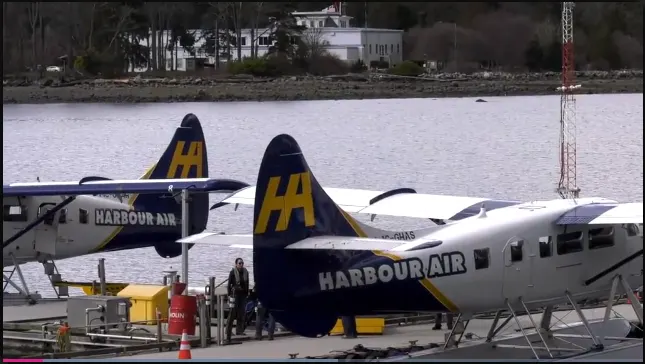
B.C. company to convert aircrafts to all-electric
Harbour Air Seaplanes expects to have the first plane airborne by November and to board its first passengers by 2022.
Harbour Air Seaplanes will be the first firm to become an all-electric airline.
Through a partnership with magniX, Harbour Air Seaplanes, based in B.C., will begin the transformation to all-electric planes.
It was announced the Harbour Air ePlane, a DHC-2 de Havilland Beaver, will be the initial jet to be converted.
It will be powered by magni500 - a 750-horsepower, all-electric motor, which would make the ePlane more powerful than the gas-driven de Havilland Beaver by 70 horsepower.
The planes would almost be quiet, but the propeller noise would still be prevalent.
Harbour Air CEO Greg McDougall said the idea for the plane came to fruition as soon as the company noticed the trends were leaning towards electric.
“Our total carbon burn with our fleet in a year is about equivalent 28,000 cars, which is, you know, significant,” said McDougall.
“Basically, we’ll eliminate our total carbon footprint. It is one thing to offset it, but it’s another to totally eliminate it.”
Roei Ganzarski, CEO of magniX, explained how the plane would operate.
“It’s a permanent magnet-motor. Basically, it takes electricity and turns it into torque, into, basically, power that turns the propeller around,” said Ganzarski.
The battery-powered aircraft announcement is the beginning of the process to convert the fleet.
Harbour Air Seaplanes expects to have the first plane airborne by November and to board its first passengers by 2022.
During this time, the company will perform rigorous testing to ensure safety.

Image above shows Harbour Air Seaplanes jet
“The beauty of aviation is that it’s very, very regulatory-intense,” said Ganzarski.
“From that perspective, we’re going to have to prove the propulsion system that is all-electric and the aircraft are as reliable and as safe, if not more so, than a traditional aircraft.”
However, doubts about the feasibility of the fully battery-powered aircraft have come forward from aerospace analyst Richard Aboulafia, of the U.S.-based Teal Group, in an interview with Global News.
“Maybe you have a central turbine that charges (batteries) up and also distributes power directly to propellers or fans or whatever else, that is probably in the 2030s or 2040s, but absolute battery-powered flight [is] really a very long ways off if ever – aside from very small planes of course,” said Aboulafia.
Source: Global News










